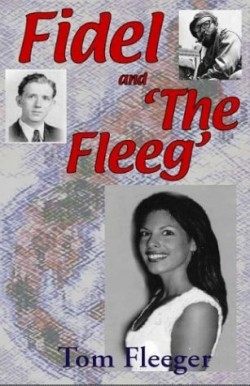
The Justice Cooperative
In its own riveting way, this novel vibrates with the urgency of an old-fashioned Alfred Hitchcock movie. Suspense builds with Hitchcock-like undercurrents, although the plot at times unfurls with the heavy-handed intensity of a National Rifle Association handbook. The author, himself a member of the NRA and Gun Owners of America, grabs a morning’s headlines and fleshes them out in this fast-moving novel that tends to preach as the drama unfolds.
Shortly after the book’s first words—“Oh, my God! No!”—the reader is hit with some news that causes terrible anxiety for Tom and Judith Borden: a federal judge has ordered inmates released from a state prison because of overcrowded conditions. One of the men to be released (because he is ten days past the mid-way point in his sentence) is a big, burly brute who a year earlier broke into the Borden house, knocked Tom to the floor, and brutally raped Judith.
Despite the fact that at the time of the attack Harry Grubbs was out of prison on parole, the judge sentenced him to the minimum possible time in jail. As he was being led from the courtroom, Grubbs shouted, “When I get out, I’ll get you!”
Now, as Tom Borden lies in bed, thinking, he realizes that “Grubbs’s sentence would have been up in little more than a year anyway. He and Judith would have faced this problem sooner or later. The day of reckoning had simply come earlier than they had expected.” So Tom goes shopping for guns, and discovers the reality that he is facing: gun laws, registration, a waiting period, and problems of ownership. All this weighs heavily upon him and Judith as they become burdened with each step toward trying to make their world safe from attack. They feel that many laws protect criminals or would-be criminals, giving them liberties under the Constitution while strapping the law-abiding citizen with tight controls.
After purchasing their guns, the Bordens begin taking lessons, practicing at a gallery where they meet others facing similar problems. Soon they learn about the “Justice Cooperative,” a secret society of justice-seekers who operate outside the law to protect the innocent and to destroy the criminals.
While the characters seem to move stiffly with a wooden quality, the overwhelming fright of their situation builds suspense that the author squeezes for all it’s worth, down to the final shot. The narrative drive quickens, rises to a crescendo, then levels to the point of a slower heartbeat.
Reviewed by
Wayne Greenhaw
Disclosure: This article is not an endorsement, but a review. The publisher of this book provided free copies of the book to have their book reviewed by a professional reviewer. No fee was paid by the publisher for this review. Foreword Reviews only recommends books that we love. Foreword Magazine, Inc. is disclosing this in accordance with the Federal Trade Commission’s 16 CFR, Part 255.
